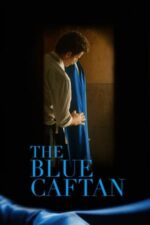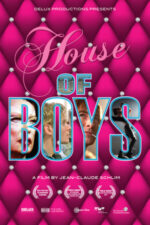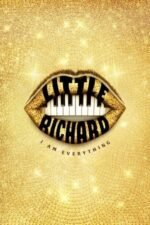Imagine walking into a bar in 1984's Amsterdam, where "House of Boys" is not just an establishment but a refuge for men seeking solace and connection. Or, envision a young woman named Ah Bu from Taiwan, bravely chasing love in the face of societal norms and personal surprises in "Gorgeous." These films, along with others like Sally: The film chronicling Sally Ride's extraordinary life and Little Richard: I Am Everything, delving into the lesser-known facets of the music legend's private life, offer captivating portrayals of homosexuality. They allow us to witness love in its myriad forms - from forbidden passion to enduring companionship - while simultaneously celebrating human resilience and self-discovery amidst societal challenges.
Sally: The film presents a poignant love story unfolding behind the scenes of Sally Ride's groundbreaking career. It is a testament not just to her pioneering achievements in space exploration but also to the quiet strength of her partnership with Tam O'Shaughnessy. Their relationship, although secretive, forms an integral part of this true story, highlighting how love can be a powerful force in our lives, often unfolding quietly alongside our professional triumphs.
Little Richard: I Am Everything, meanwhile, uncovers the black, gay origins of rock n' roll, challenging the whitewashed history of American pop music. This documentary masterfully intertwines electrifying performances with archival footage and personal recollections to provide a rich portrait of an artist who significantly influenced the genre. It invites us to rethink popular narratives about legends like Little Richard, shedding light on aspects that may have been overlooked or ignored in traditional accounts.
In "Four Times That Night," we witness the complexity of human desire and misinterpretation through a series of vignettes presenting different perspectives on an evening where a man tries to seduce a woman. Each narrative strand adds depth to the story, subtly revealing how personal baggage and communication gaps can shape our understanding of situations and interactions. This thought-provoking film underscores the importance of empathy and introspection in navigating complex social dynamics.
"House of Boys," set against the backdrop of 1980s Amsterdam, narrates Frank's journey as he finds solace and friendship at a bar-cum-brothel after running away from England. The ever-present shadow of 'the gay cancer' hangs over the community, adding an emotional layer to their stories. Yet, the characters persevere in their pursuit of happiness, highlighting themes of resilience and hope amidst adversity.
Finally, "Gorgeous" takes us on a rollercoaster ride with Ah Bu as she navigates romantic waters filled with unexpected twists. Her encounters with Albert and Chi Wu offer compelling insights into different aspects of love and companionship, while also showcasing the nuances of cultural clashes and personal growth.
These films, each unique in their narrative style and setting, collectively provide a rich tapestry of homosexual experiences and themes. They remind us that love can take many forms - it could be the enduring bond shared by Sally Ride and Tam O'Shaughnessy or Little Richard's trailblazing spirit; it might involve navigating complex social dynamics as in "Four Times That Night" or finding solace amidst adversity like Frank does in "House of Boys." Whether it's Ah Bu's journey of self-discovery in "Gorgeous" or the celebration of Little Richard's influence on music, these stories offer valuable lessons about acceptance and resilience.
In essence, these films serve as powerful reminders that behind every story, there are people grappling with complex emotions - love, loss, fear, joy, and everything in between. They invite us to reflect upon our own beliefs and experiences while also opening windows onto worlds different from ours. By engaging with such narratives, we not only deepen our understanding of homosexuality but also enrich our empathy towards all human beings striving for love, happiness, and self-discovery.





























